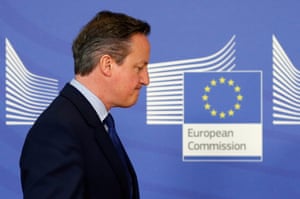So long, 2016: the year of the political earthquake

Farewell Barack Obama, David Cameron and Europe: how will this year go down in history?

On the evening of 8 November, the world gathered in front of TV screens for the news. In the early hours of 9 November, it began to dawn on us that what we were watching was no longer news but history. Not since 9/11 could many recall such a sense of incredulous dread, and as Florida fell to Donald Trump, I found myself seized by an eerie premonition. I saw schoolchildren turning over history examination papers in the future, to find a question as predictable and familiar to their generation as one about the origins of the second world war had been to mine: Identify and analyse the parallels, it would read, between the 1930s and the 2010s.
No one yet knows how 2016 will be remembered, and if Boris Johnson turns out to be right, we will wonder why anyone ever worried about the arrival of another liberal guy from New York in the White House. If, however, pupils do one day have to answer that exam question, they might well begin by observing that we were every bit as slow as our forefathers to recognise impending catastrophe.
When David Cameron returned from Brussels in February, brandishing his peace-in-our-time renegotiated EU membership terms can anyone now even remember what they were? it looked as if the referendum promised nothing more sinister than the entertaining spectacle of the government tearing itself apart. No one was surprised to see Iain Duncan Smith, Chris Grayling, John Whittingdale and Theresa Villiers side with Vote Leave, but Michael Goves defection was a bombshell. When Johnson followed a day later, after a huge amount of heartache, the audacity of the pretence that he was acting on deeply held anti-EU conviction fooled nobody. As the columnist Nick Cohen put it after the vote, There are liars, and then theres Boris.

In Johnsons defence, he wasnt the only one exploiting Europe for personal ambition. Camerons motives for calling the referendum had little to do with principle and everything to do with neutralising Ukips threat and silencing internal dissent. Europe had been a toxic nuisance to Tory leaders for 40 years, and back in 2006 Cameron famously blamed banging on about Europe for his partys unpopularity (Instead of talking about the things that most people care about, he declared, we talked about what we cared about most). By the time the campaign began, fevered speculation about its implications for the Tories left little room for much thought about the damage it could do to the country.